Negative Gearing Real Estate A Brief Overview
Whilst tax advantages of negative gearing are a huge incentive to purchase property there are other matters to consider to make the investment a successful one.
Obtain knowledge of the market you are investing in. There is a lot of information on the internet which you can access to do some initial homework.
Seek out the best professionals in the area you are interested in. They will have a more intricate knowledge & detailed information of the local market & alert you to opportunities as they arise.
Understand the information you have obtained from the internet and property professionals. Note the meaning of gross and net yields and average sales prices which can be skewed by one abnormally large sale. Be aware of the different classes of property such as residential, commercial and industrial besides other data such as vacancy rates.
Be extremely cautious if you are an "absentee landlord" and have virtually no knowledge of the local market in the first place e.g. interstate or overseas property.
There are many horror stories of disastrous property investments being made due to lack of knowledge of local council, government and tax laws.
Self Managed Super Funds (SMSF) are now able to invest in certain classes of real estate. Despite the many advantages of using a SMSF as the investing vehicle there are stringent rules and regulations that must be adhered to hence it is important that you obtain the advice of a professional specialising in this area.
An accurate valuation is critical as well as being required by financiers if you are borrowing to purchase the property or using a SMSF as the purchasing vehicle. Paying the right price is just as important as obtaining a good sale price when disposing of your investment.
Taxation benefits of negative gearing need to be fully understood to ensure you obtain the desired return over the life of the investment. Obtain advice from an accountant to obtain knowledge of the effects of capital and expense outlays and special depreciation allowances. It is also important to obtain advice as to which person, persons or entity should purchase the property.
Know the costs and legal risks of owning an investment property. There are many costs involved such as loan repayments, repairs, insurances, strata levies if appropriate, that must be considered to make sure you are able to afford to maintain the investment. Besides financial it is important that you are also aware of the legal risks involved in owning an investment property and that besides having the appropriate insurances in place you also comply with all statutory obligations.
Contact us for a free no obligation consultation re any of the above or any other tax, accounting, superannuation or business matters.




